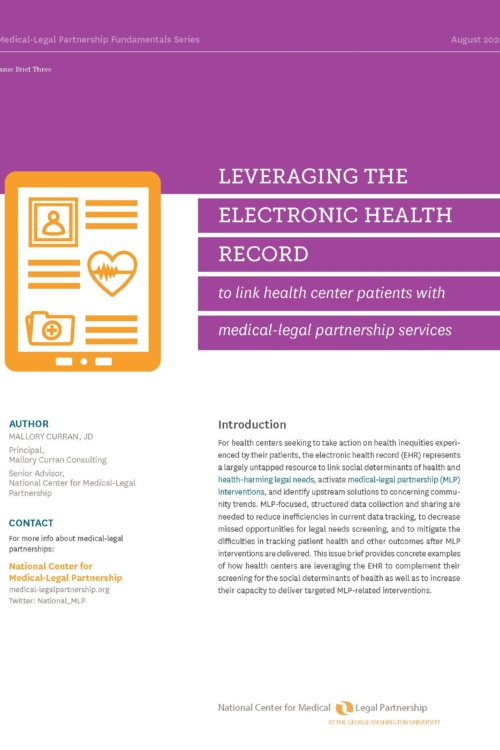
Brief: Leveraging the electronic health record (EHR) to link health center patients with MLP services
Tuesday, August 11, 2020
For health centers seeking to take action on health inequities experienced by their patients, the electronic health record (EHR) represents a largely untapped resource to link social determinants of health and health-harming legal needs, activate medical-legal partnership (MLP) interventions, and identify upstream solutions to concerning community trends. MLP-focused, structured data collection and sharing are needed to reduce inefficiencies in current data tracking, to decrease missed opportunities for legal needs screening, and to mitigate the difficulties in tracking patient health and other outcomes after MLP interventions are delivered. This issue brief provides concrete examples of how health centers in Iowa, Montana, and Texas are leveraging the EHR to complement their screening for the social determinants of health as well as to increase their capacity to deliver targeted MLP-related interventions.
